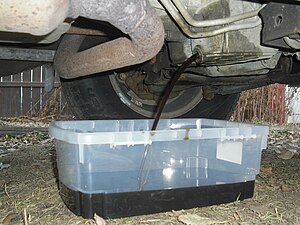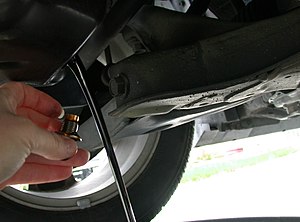Take it with a grain of salt
Okay, we know that manufacturers are always going to tout their own product, so take any motor oil reviews that you read with a grain of salt. Don't dismiss these reviews, but consider them along with the following information:
What oil type is best for your car, according to the vehicle's documentation? Make sure that you choose an oil that is the right viscosity according to the manufacturer.
Is the oil being reviewed petroleum based or synthetic? Neither is superior for every situation. Synthetic may be best for some cars, but that doesn't mean it is the best for yours.
 Image via Wikipedia
Image via WikipediaWhat is your driving style? If you do a lot of heavy load work with your vehicle, it is going to change your oil needs, so take the style and needs of your driving into consideration.
Reviews can be helpful to make the right decision, but they should always be used in conjunction with some serious fact finding of your own.













